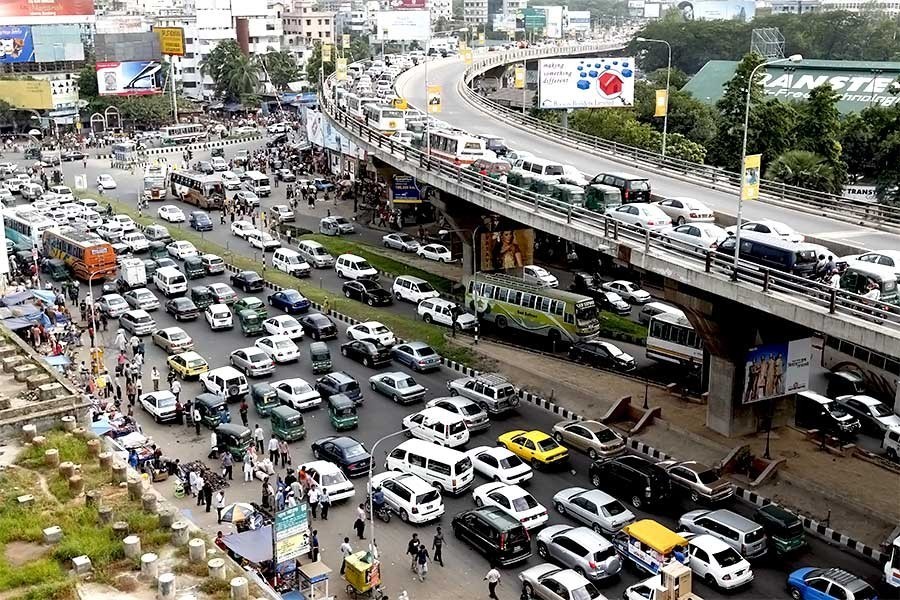Post-Eid Dhaka city is a commuter's delight. No tailbacks on the nearly empty roads. Reaching places timely is no more challenging. Contrast this with the news carried in a Bangla contemporary, contending that by 2025 the average speed of vehicles on the capital's roads will be slower than the walking speed. The indication is clear: people will have to walk home instead of boarding on a bus in order to save time.
Already, the city's traffic movement gives one a nightmarish experience. The average speed of vehicles in the city in rush hours has been estimated at seven kilometres an hour. Already a cause for serious concern, the flow of traffic will thus come to a standstill several times a day, turning the city almost dysfunctional.
The authorities hardly give any impression that it is particularly concerned about the daily doses of traffic ordeals. True, they have constructed a few flyovers and undertaken construction of an elevated expressway. The flyovers have failed to ease the traffic off because of the inherent weakness of Dhaka's constrained road space and lack of diversity. Maybe, the expressway will come as a real blessing for residents of a few particular areas but the overall situation will hardly improve.
Moreover, it will take sometime before the expressway comes into service. By the time it is in operation, the population of Dhaka will swell further. The future of Dhaka traffic hardly holds any bright prospect. Should its inhabitants resign to a pessimistic view of the city's future as well?
What is most unacceptable is the attitude of the different organisations and bodies responsible for the management of the city's transport sector and traffic. Instead of enforcing discipline, rules and regulations, these bodies seem to deliberately create conditions where anarchy rules supreme. They cannot come up with a plausible reason why the automatic traffic signal was rendered non-functional. The authorities did not approve what is called 'sitting service' but the system is there. Official announcement that such services cannot be operated triggered a strong response from bus operators and the Bangladesh Road Transport Authority (BRTA) had to capitulate to the pressure.
A committee formed to recommend measures for operation of such services submitted its recommendations a few months ago but there is no follow-up yet. In the name of sitting buses, operators are fleecing passengers. There is no sitting service, except a couple of those, in reality. Arguments, exchange of hot and nasty words and even brawls over the rate of fares are a regular feature on such running buses.
Why services have deteriorated and speed has reduced to a snail's pace is not difficult to find. Even within the existing condition, things stand to improve if only the authorities are serious about doing so. But they seem hardly interested. Traffic is regulated not by signals but by traffic constables and sergeants who use their hands more than the limb's due. This is unacceptable.
To add speed to traffic flow in the city and still help vehicles avoid coming too close for comfort at the time of overtaking, the number one 'must do' is to make it mandatory for public buses to stop at designated bus stops -nowhere else. The unhealthy rivalry for passengers is a cause for sandwiching passengers or their limbs in between two vehicles. Picking up and dropping passengers anywhere and everywhere have to be totally prohibited. Both bus operators and passengers will be fined if this is done. Next, automatic traffic signals will be allowed to regulate traffic movement. Any violation of traffic signal will be punished according to the traffic rules. To implement such orders, bus stops have to be clearly demarcated and at no point the traffic police can be lax and turn a blind eye to using any stretch of roads by bus operators for picking up and dropping passengers.
All mega cities in the world, including those with comparable socio-economic conditions, follow some basic traffic rules in order to keep things moving. Dhaka should not lag far behind in this respect.


